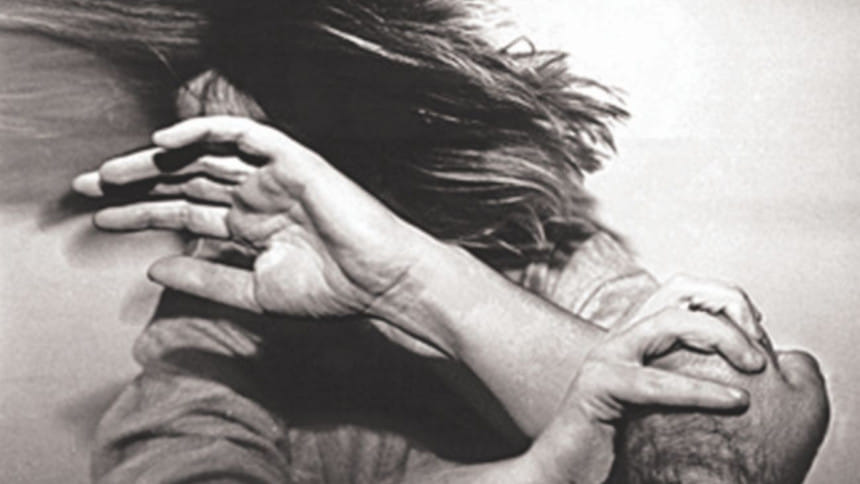Battling the shadow sexual violence pandemic

The Covid-19 pandemic has shown the fragility and brokenness of Bangladesh's health system. But what we may fail to realise is that Covid-19 is also making way for aggravating the already perilous situation of sexual violence against women and children in Bangladesh.
Covid-19 has also created a learning crisis for children, but this is particularly true for children and adolescents from disadvantaged backgrounds. Although the public education system is currently being broadcasted via Sangshad TV, proper accessibility to such alternative mediums of education remains questionable. These out-of-school children and adolescents have a lot of free time on their hands and are likely to fall prey to boredom. During the adolescent age period (10-19), they also have to cope with disconcerting new sexual impulses and romantic feelings. Due to lack of educational opportunities in this year, the likelihood of them falling into regressive thought patterns about human sexuality is extremely high. Moreover, a substantial faction of the young population is falling into a state of hopelessness and uncertainty due to mass job losses. The likelihood of this unemployed male segment of the population becoming potential sex offenders is also very high.
While following the news reports on rape in Bangladesh, one cannot help but notice that a large faction of rape is being committed by juvenile offenders (12-19 years) who are raping girls from their own age group to children as young as toddlers (1-2 years). Every time we see such horrific cases, there's an outcry for exemplary punishment. But what we don't acknowledge is that our state and society have miserably failed at teaching these young boys about how to respect girls, women and womanhood. Traditionally, Bangladesh's household-environment can be attributed to the "Dominant male model" where deep-seated sexist ideologies are practiced. The belief is as such that woman in her origin is derivative and secondary; that men are inherently superior to women and that women are for men's use, although they were inherently created for the mutual benefit of each other by God. These beliefs have deeply imprinted themselves on the minds of the majority of the Bangladeshi population, causing immeasurable harm to both men and women in the country.
Moreover, many young boys learn about sexual behaviours mainly from pornographic material they can access. It's important to understand that the human brain is wired to repeat what it sees and hears; it's a major part of how humans learn. And the more senses one gets involved in the learning process, the more consistent the message is, and the more often one sees it, the more likely one is to be influenced by it. That's why consuming pornography is toxic—it's a short distance from consuming something in porn to desiring it in real life. Moreover, human brains have poor impulse control ability in the adolescent period. The largest international study on rape, carried out by a consortium of United Nations agencies for two years involving 10,000 men from Bangladesh, China, Cambodia, Indonesia, Papua New Guinea and Sri Lanka, confirms that repeated offences are very high among rapists and unhealthy attitudes about sexuality take root at a young age. Therefore, what one exposes themselves to in their early childhood and adolescent period has a long-lasting impact in their adulthood, and prolonged exposure to porn can really hurt the viewers and other significant people in their lives.
How can we take up preventive measures collectively in order to avert a greater number of sexual crimes—which are already on the rise in Bangladesh in recent years—amidst the pandemic or in post-Covid times?
In 2017, the Bangladesh government took up measures to block pornographic websites to cut the widespread availability of obscene elements on the internet. However, if one assesses data for the last three years since porn was banned, there is still a steady increase in the number of rapes, murders after rapes, suicides after rapes, and incidents of attempted rapes of women of all ages, including minors. Thus, banning porn has not necessarily yielded the intended outcome. Moreover, in Bangladesh, even the government and many NGOs and human rights bodies unfortunately do not think men and boys can get raped or sexually harassed. Majority of the victims do not report these cases for fear of social ostracisation. However, that does not mean they are not happening.
To avoid an even bigger crisis in the immediate future, the government needs to take up innovative measures to deter youth and adolescents from engaging in acts of sexual violence. For example, the Ministry of Education, by partnering with youth organisations, can take up mass awareness campaigns, or can create greater access to educational platforms that suit our localised contexts, similar to the Robi 10-minute school. Law enforcement authorities should also create massive awareness campaigns on juvenile offenders and the punishment for committing sexual crimes. If these young boys and men are not educated on which futures to aim for and which to avoid, they are only going to fall into a cycle of hopelessness, desperation and often times violence, considering the current depressing state of the economy.
According to various news reports, in the past three months, Hiramoni (16), a ninth grader from Laxmipur, was brutally raped and killed in her home. Noora (16) was raped and killed in her home at Gazipur, along with her two siblings and mother by a 17 year old boy. She scored GPA-5 in this year's SSC exam and was probably dreaming her way to college. Takmin (16) was brutally raped and killed by her boyfriend Ashikul (18) on the night of their supposed elopement in Mymensingh.
The sexual abuse that we are seeing so continuously in Bangladesh are likely to be cases of intergenerational and cyclical abuse, which are increasing at an alarming rate. One does not have to be very observant to identify that often enough, the root cause for such disturbing behaviour is a "continuing cycle of violence". When someone is ill-treated or relegated to a demeaning position in society, they often respond by venting their frustration on someone whose societal position is even lower than their own. By destroying or tormenting the weak, such as a child or animal, the oppressor becomes the master who has, in turn, tortured them. Thus, anger is directed at an innocent instead of the perpetrator of their own victimisation, leading to the creation of more abusers. Vulnerable children who witness such heinous acts, often times become desensitised to violence and lose the ability to empathise with victims, and continue to emulate such behaviour.
Amidst this Covid-19 pandemic, it is important to find ways to cooperatively battle the shadow sexual violence pandemic that is looming ahead. This can only be done by taking up massive, innovative and coordinated efforts, by both the government and non-governmental organisations. While trying to fix our broken health system, our slow response to addressing these learning and psychological development gaps for young boys may lead to an even bigger catastrophe in the imminent future. Will we light a candle of reform or curse the darkness of the crime?
Jannat Adib Chowdhury is a development practitioner and currently works for Swisscontact in Bangladesh.The views expressed here are those of the author and do not necessarily reflect the views of the author's organisation.

 For all latest news, follow The Daily Star's Google News channel.
For all latest news, follow The Daily Star's Google News channel. 



Comments